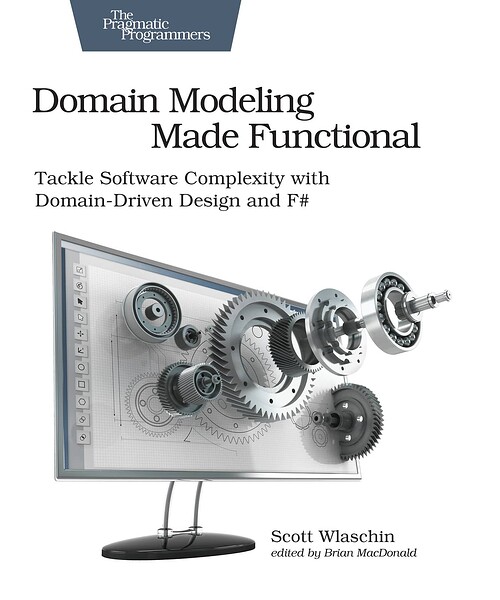TL;DR I am reading “Domain Modeling Made Functional” and discussing and keeping a journal of what I learned from it, any co-readers welcome because the topic alone is so interesting that I will get 4 times the fun if we chat about things here! F# or not, this is amazingly well-written and useful!
Hello! I’m back. This is something I’ve been trying to do for awhile now. Domain Modeling Made Functional is one of the best books I have read on the topic. I read it when it got out but I did not know F# nor had I any interested in it, so I just read the concepts and translated whatever I felt I earned into Elixir or Python, or JS depending on what I was in the mood for on that day.
During my (along with a friend’s) stunt of #100DaysOfCodeIn100Languages (started as a joke, got serious, now back a joke) I encountered F# on day/language 13, and I enjoyed solving the problem with it (I had C# earlier that had similar effect but not a saga-breaking one like F# had), I recalled I have a book on it so decided to give it another read.
I picked the book up two weeks ago while travelling to Alberta, and ended up spending 3 of the 4 hours on aeroplane reading it, thoroughly impressed and enlightened! I felt like it would be more effective if done at a much slower pace, on different reference project, and discussing with friends! So here I am, having my third (second one didn’t fail, I will continue it soon) book club in this group.
The routine’s regular, I read a chapter or two, and talk about what I learned and how it would influence how I reason about a unit of code that does something. If you join me, that’d help me more! Eitherways, I’ll treat it as a set of side-notes or scribble which would help me when I refactor a deserving monolith or give my next talk on DDD (It already helped in my 2018 PyCon Canada session).
I will reset and restart from chapter 1 here, starting right now!

